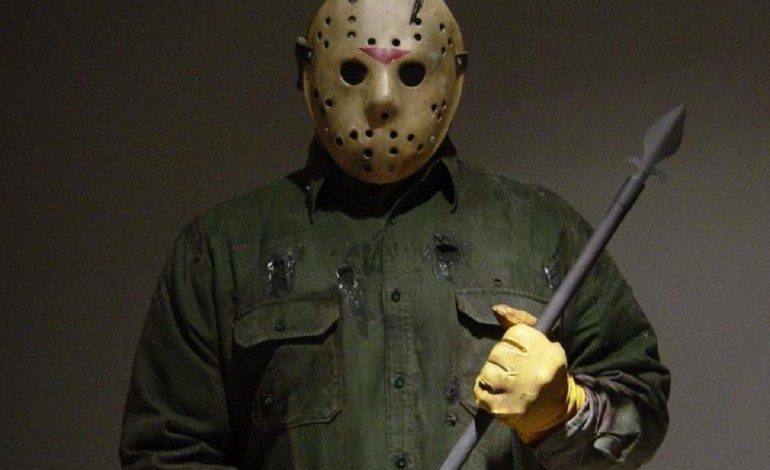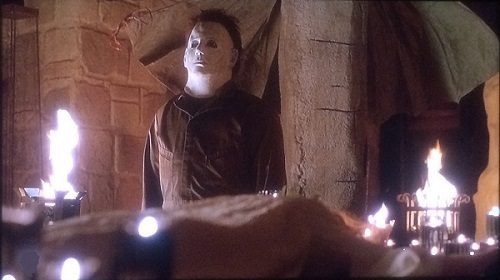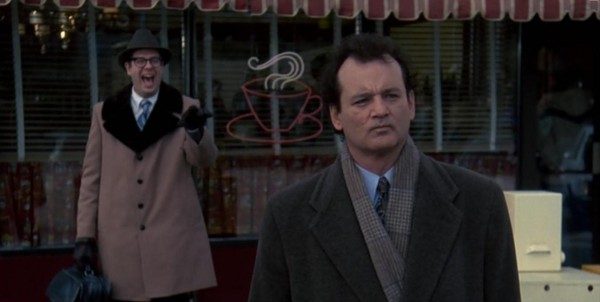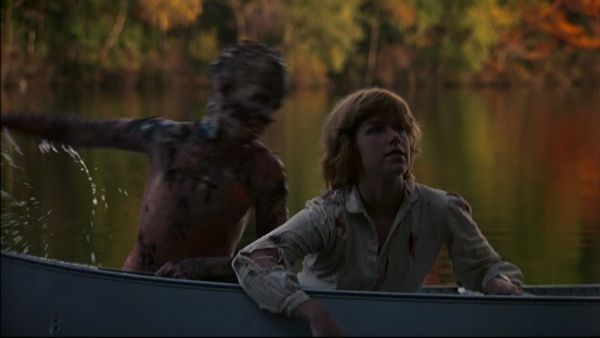

Last week, Platinum Dunes producer Brad Fuller announced that the next Friday the 13th movie (the second reboot in the franchise, following the 2009 one) will probably delve into Jason Voorhees’ immortality – why the man with the hockey mask always comes back after dying in every single movie. As he puts it, “People traditionally want to understand exactly how and why things happen, and yet something so odd happens at the end of these movies and no one seems to question it.” That’s not necessarily true. Sometimes not having information is important. Sometimes not having information is essential. And sometimes not having information defines the story or the character.
At this point, the immortality of monsters in monster movies is a given. And it has been ever since Frankenstein’s monster snared himself a bride four years after his supposed death. And this tradition was never more prominent than the 1980s when most every popular slasher would return again and again to take out his issues on unsuspecting teenagers. How and why did they come back? For a serious answer, money – these were low budget films that generated high returns. But within the film’s context, we rarely got an answer…and no one cared and that was part of the charm.
Admittedly, many of these monsters had some sort of backstory. Freddy Krueger was a child molester/murderer who was burned to death by mob justice and came back to life to get revenge. Chucky (the doll from Child’s Play) came to life via the witchcraft of a dying criminal. John Carpenter’s Michael Myers from Halloween was born evil. The Texas Chainsaw Massacre family was just a screwed up family – there was nothing supernatural about them.
But Jason Voorhees was something different altogether. Yes, he was “technically” the grown-up version of a boy who drowned at Camp Crystal Lake, seeking revenge on the counselors who let it happen, and on their spiritual descendants. But his story was just the vessel. What Jason was, and the “reason” for his immortality, is that he’s the ultimate urban legend come to life. He is the physical manifestation of every campfire tale ever told. He is arguably the most monstrous of them all simply because he has no voice and no personality – his only purpose is to cause death. He can’t be bargained with. He can’t be reasoned with. He doesn’t feel pity, or remorse, or fear. And he absolutely will not stop, ever, until everyone is dead. (After Genisys fails, Terminator vs. Jason?)
This aspect of Jason (as well as his colleagues, but Jason in particular) and the entire concept of the slasher movie helps to show the counterproductive quality of delving into his immortality. These are horror movies, and horror by its very nature is based on fear, and fear by its very nature is not rational. Trying to apply logic to this most illogical thing might help people overcome their phobias in real life, but it utterly defeats the point of a horror movie. Jason, as a manifestation of fear incarnate, will lose some of his power if there is some reason given to his being. And after all, it’s not as though any explanation for his immortality is going to be satisfactory.
It should also be noted that filmmakers actually tried something like this with the original Michael Myers (the one in the John Carpenter timeline, not the one in the Rob Zombie timeline), who is closest in spirit to Jason than any of his fellow ‘80s slasher icons. In the 1978 classic, Myers (original version) was just an average kid in an average suburban household who up and stabbed his sister to death for no reason on one Halloween night. No rhyme, no reason, just evil. As an adult, he was similar to Jason – no voice, no personality, just a specter of death.
In 1995, Halloween 6: The Curse of Michael Myers (best known as The One With Paul Rudd) revealed that Michael’s “power” came from the Cult of Thorn, a cult of druids that chooses one child every generation to murder his entire family to protect the world. They were also doing genetic experimentation on Thorn “sacrifices” at the same time to understand why they had super strength and immortality. But which is more affecting and frightening? Born evil? Or cult of evil druid scientists? (This angle was so poorly received that the next film in the series, 1998’s Halloween H20: Twenty Years Later, completely dropped movies 4-6 from canon and picked up directly after 2).
The power of not giving a definitive explanation for certain occurrences expands well beyond the horror genre. Why did Phil Connors keep repeating the same day in the 1993 comedy classic Groundhog Day? Who cares? The studio even tried to force the inclusion of a “gypsy curse” explanation, but Harold Ramis didn’t put it in the finished film. And the movie is all the better for it. What’s important is that Phil relives the same day. What’s important are the lessons he learns. In fact, the movie is enriched by the idea that he’s stuck in that infinite loop without cause or recourse. Anytime you’re dealing with something in the metaphysical/supernatural realm, explanations are irrelevant because they’re never going to be realistic or satisfactory anyway (and it will probably end up as the most out-of-place part of the movie). If the film works, as outlandish as the concept is, you’ll have the audience. If it doesn’t, you’ll lose them. (And if you feel you need to hold their hand through every twist and turn, that’s condescending, and that’s even worse.)
The Christopher Nolan Batman movies similarly utilized this style of missing information to their advantage. The Joker was a “force of nature.” Who was he? Where did he come from? Again, who cares? Not only were these questions irrelevant, but answering them probably would have hurt the character. Having something exist could be reason enough for their existence. Giving too much information about The Joker would make him too human, too understandable, too logical. This, in turn, would defeat the entire point of the “agent of chaos” character that Nolan and Ledger created. Batman Begins played on this to a lesser extent as well. Who was Ra’s al Ghul? The universe of the movie (seemingly) would not allow for a Lazarus Pit of immortality, but the League of Shadows certainly was an organization with roots going back centuries. Is there a real Ra’s al Ghul, or is it a title passed from generation to generation as representative of something greater, similar to how Bruce Wayne saw Batman?
On the flip side, popular science fiction/science fantasy franchises show the dangers of over explanation. It didn’t matter what the Xenomorphs (from the Alien series) were or where they came from. All that mattered was that they were remorseless killing machines who could take over a planet as easily as they can take over a ship. Even Weyland-Yutani’s use for them was irrelevant. Their biology was only important insofar as every bit of them were weapons. When an explanation of their origins was attempted, we got the highly disappointing Prometheus and the nonsensical Engineers. And need I bring up what the Star Wars prequels did to Boba Fett and Darth Vader?
Deciding what to tell and what to leave out requires a delicate balance that depends on the specific property. In some stories, not saying anything says more than saying everything. While in others, not saying anything shows how little you have to say, which isn’t even inherently a bad thing … unless you’re confusing unanswerable “mysteries” with actual depth. The aforementioned Prometheus is a notable example of a movie that kept throwing out random plot points/mysteries in an attempt to distract us from the emptiness at its core.
Most horror movies fall into the other crowd though. Slasher films, the Friday the 13th films especially, were never meant to be deep movies. Trying to fill them with faux-metaphysical nonsense only misses the point. The why and how of Jason is not nearly as important as the “that.” That he keeps coming back from the dead, that he keeps killing people, that he keeps returning to Camp Crystal Lake. Friday the 13th‘s Jason Voorhees has lasted for nearly 35 years without us giving thought to his immortality … because it never mattered. Yes, he fell out of favor with mass audiences, but that was because the slasher genre fell out of favor with mass audiences. Is there a way to bring him back? Probably, and hopefully not as a crappy action hero like in I, Frankenstein or Dracula Untold. Then again, it might be telling that none of the many reboots of the 1980’s-era horror icons have succeeded – but that’s a topic for another time.
Or, to put another way, when watching any of these slasher films, did anyone really question the logistics of the monster’s immortality or how it was able to move faster than a sprinter despite its lumbering gait? Or did they just care about the boobs and gore? (And if it’s the former, check out the Fan Theories section on Reddit. If nothing else, it’s an annoyingly interesting time waster.)



